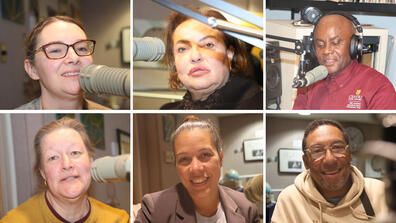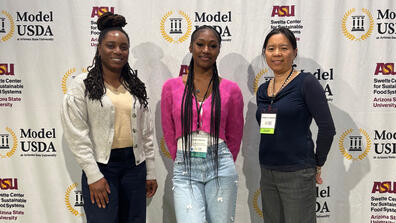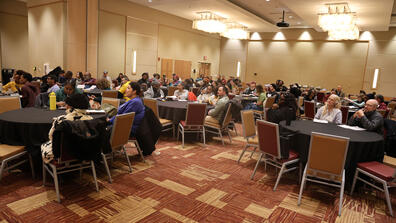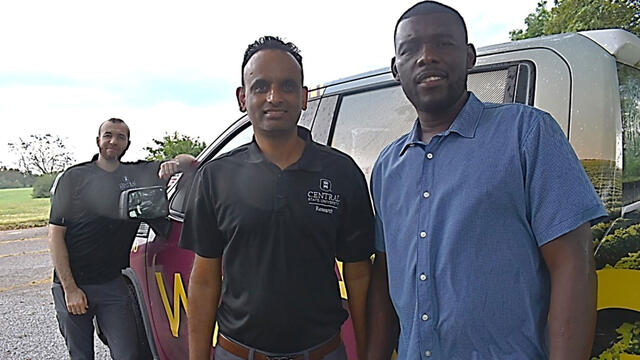
Six Questions for Research Technician Sena Atsyo
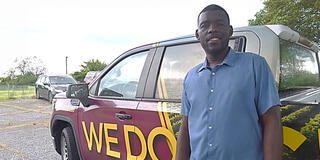
Sena Atsyo was a research technician for Central State University’s 1890 Land-Grant Programs from January to August, 2025, when he left to start a doctoral program in Agricultural and Biological Engineering at the University of Florida. He earned two master’s degrees, one in Agricultural and Biological Engineering from Pennsylvania State University, and the other in Agricultural Machinery and Technology Engineering from Cukurova University in Adana, Turkey. He received his bachelor’s degree in Agricultural Engineering from Ho Technical University in Ghana.
Throughout his career, Atsyo has held various leadership roles in both private and public sectors, including at Central State University, Pennsylvania State University, Sammis Greenhouse, Ghana Agricultural Engineering Services Directorate, Agritop Ghana Limited, and MBC Africa. His career has focused on advancing agricultural technologies through research and development. Atsyo’s future career goal is to contribute to sustainable agriculture and food security by integrating engineering solutions into farming systems. Dr. Cyril Ibe, Land-Grant interim communications coordinator, emailed Atsyo questions, and he provided responses, which have been edited lightly for both brevity and clarity.
You have left Central State University to start a doctoral program at the University of Florida - what will be your specific area of study and research focus there?
My research at the University of Florida will focus on developing biosensors to monitor stress and behaviors in farm animals. I will be designing and developing wearable biosensors to track stress levels and behavior in turkeys, with goal of improving animal welfare and precision livestock management.
During your time with CSU’s Agricultural Research and Development Program, what were the most valuable lessons you learned about agricultural research and innovation?
I had a wonderful experience with the ARDP at CSU. The most valuable lesson I learned is the importance of staying focused and organized in pursuing research goals. Agricultural research often involves a lot, from fieldwork to lab work, and success depends on careful planning and persistence to execute tasks.

You’ve worked closely with CSU students in the field and lab - what was that experience like, and what did you learn from mentoring them?
Working with CSU students in both the field and lab was an incredible experience. I was impressed by their curiosity, dedication, and ability to succeed in life. With the right guidance and encouragement, I believe they have the potential to become not only excellent researchers but also valuable contributors to their communities, the nation, and the world at large.
The raspberry demonstration plot is part of an advanced research effort in agricultural automation - what role did you play in that work, and what excites you most about its future impact?
As part of CSU’s efforts to advance agricultural robotics and automation, I was responsible for managing operations at the raspberry demonstration plot, from conceptualization and preparation to planting, data collection, and harvesting. I utilized unmanned aerial systems, such as drones, along with ground-based robots to collect research data. What excites me most is seeing how agriculture is evolving from traditional practices to smart, technology-driven systems. I am inspired by the potential of these innovations to transform productivity, sustainability, and the future of farming.
Reflecting on the time you spent at Central State, what did you enjoy the most about your experience at the institution?
What I enjoyed most was the opportunity to be part of a collaborative research environment that directly connects science with real-world agricultural challenges. At CSU, I was able to work hands-on with research projects that supported small-scale farming while also contributing to broader impacts in sustainable agriculture.
As you turn to the next chapter of your career, what advice would you give to CSU students or young researchers who want to follow a similar path in agricultural science?
My advice to CSU students would be to stay focused and open to learning from every opportunity, whether it’s in the lab, the field, or the classroom. Don’t be afraid to ask questions, seek mentorship, and take initiative in projects, even small ones, because those experiences build the foundation for future growth.
Agricultural science is an interdisciplinary field, so developing skills in areas like data analysis, technology, and communication will set you apart. Most importantly, be motivated by remembering the impact your work can have on food security, sustainability, and the communities you serve.
